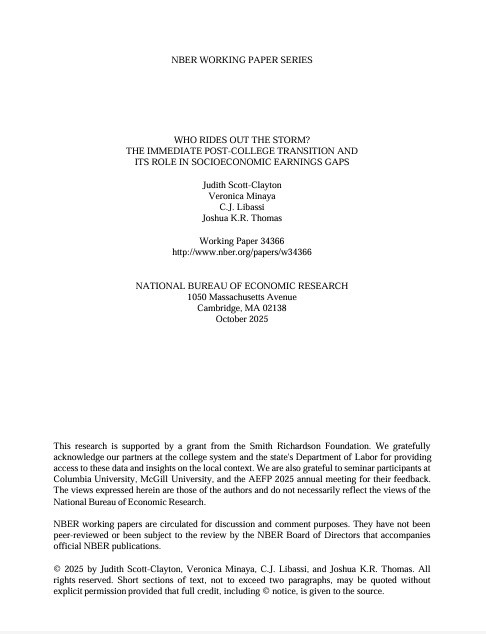
Despite a large earnings premium for bachelor’s degree completion in general, graduates from low-income families earn substantially less than graduates from high-income families. While prior research has documented the role of college quality and major choice in explaining these gaps, the authors examine undermatching on a different margin: the first (post-college) job transition. The transition from college to the labor market can be challenging to navigate, and students with financial, informational, or other disadvantages during the job search may be more likely to “undermatch” to their first job. Using administrative data from a large, urban, public college system, the authors document large gaps in earnings five years after graduation by SES (proxied by financial aid receipt) that remain unexplained even after controlling for GPA, college, field of study, and other pre-graduation characteristics. They then examine how features of the initial job transition relate to longer-term earnings, and to what extent differences in the first job transition can explain later SES earnings gaps. Their results show that first job transitions are rocky for many graduates, strongly predict earnings at Year 5, and are a substantial mediator of socioeconomic gaps in earnings five years after college graduation—reducing the unexplained gap by almost two-thirds.
